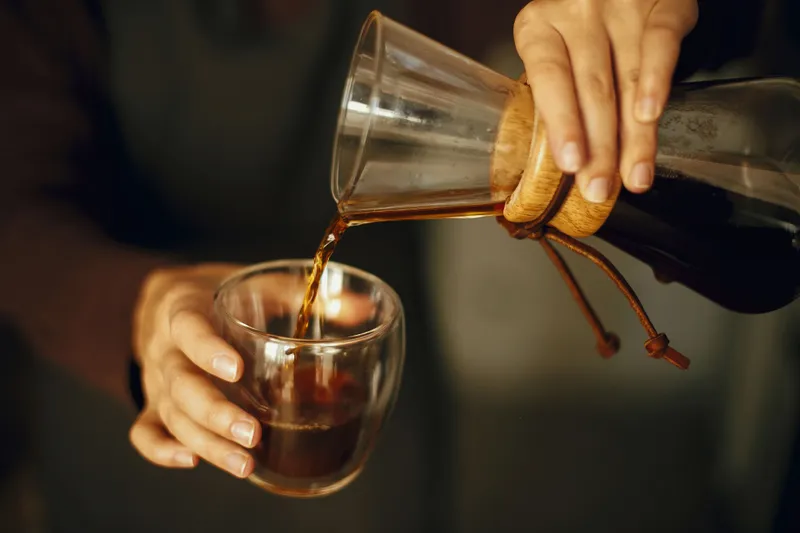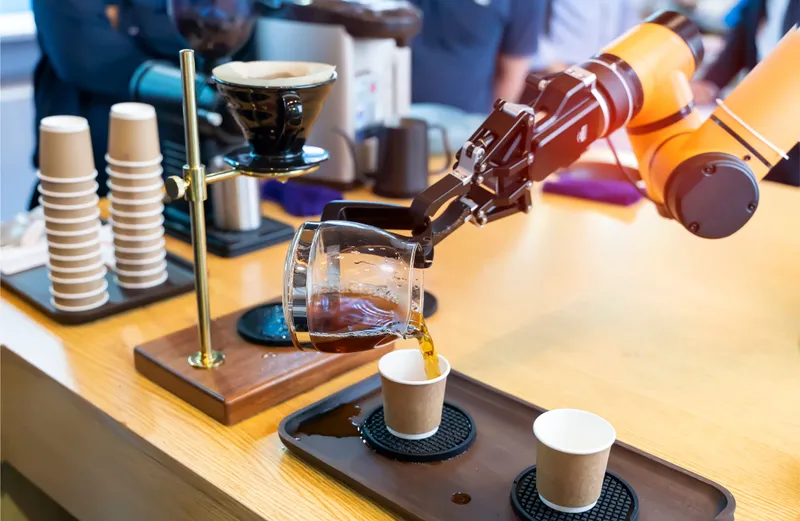How technology is shaping the coffee culture around the world
Coffee is no longer just about the beans and the brews. The coffee culture today is dominated by innovation, sustainability, and personalised experiences.
The way coffee is consumed in India and around the world is changing. This shift is driven by technological advancements made to cater to changing consumer preferences.
In the US, for example, over 50% of coffee businesses started dedicating a significant chunk of their resources to consumer-facing technology post the pandemic. This included app ordering, mobile payments, and delivery services. We’ve seen a similar revolution in India. Several metrics suggest that the business for cafes and coffee shops has more than doubled ever since online delivery came into the picture.
But this is just the tip of the iceberg, coffee is no longer just about the beans and the brew, it’s also about innovation, sustainability, and a highly personalised experience that caters to the evolving modern palate. Let’s take a look at how technology is revolutionising the coffee industry.

Source: Shutterstock
Automation from farm to cup
Automation is the cornerstone of the modern coffee industry. Automated systems are streamlining various processes, from harvesting coffee cherries to managing customer data and brewing the perfect cup of coffee.
Companies like Crown Digital have even introduced robotic baristas, such as ELLA, that are deployed in locations across Asia, Europe, and Australia. These robots ensure consistency, quality, and efficiency, although they face challenges in replicating the human touch in aspects like latte art.
Similarly, there has been a rise in the use of smart coffee machines equipped with internet connectivity that allow us to control brewing processes remotely via apps. These machines can adjust brewing temperatures, schedule brewing times, and even recommend coffee blends based on user preferences, offering a highly personalised coffee experience.
Smart devices
Smart devices are revolutionising the coffee industry by integrating the internet into the coffee production and delivery chain. There are now internet-enabled coffee scales, grinders, and brewers that ensure precise measurements and optimal extraction, enhancing the consistency and quality of coffee.
This technology allows everyone (from beginners to pros) to achieve professional-level brewing results effortlessly. Moreover, smart devices are transforming logistics in the coffee supply chain. We now have smart shipping containers that provide real-time monitoring of coffee shipments, ensuring transparency and reducing risks throughout the supply chain.
Specialty Coffee Apps
The rise of specialty coffee apps has significantly enhanced the coffee experience for enthusiasts. These apps provide detailed information about local coffee scenes, independent cafes, and unique coffee blends. They offer real-time updates on brewing methods, recipes, and coffee trends, enriching the overall coffee experience.
For instance, the COFE App connects consumers to over 750 coffee shop businesses across the MENA region, facilitating digital coffee shop transactions such as delivery and pick-up (World Coffee Portal).
Sustainability and smart farming
Sustainability is a growing concern in the coffee industry, and technology plays a crucial role in addressing this issue. Smart farming techniques such as precision agriculture use data analytics and sensors to monitor and optimise crop conditions, improve yield, and reduce resource consumption. These technologies help farmers adopt more sustainable practices and reduce their environmental footprint.
Additionally, advancements in climate resilience are crucial as climate change poses significant threats to coffee production. Research into lab-grown coffee and other innovative farming methods aims to help farmers adapt to changing conditions and ensure long-term sustainability. Now, even genetic mapping is being used to identify the genetic makeup of coffee plants to develop new strains that are more resilient to diseases and climate change.

Source: Shutterstock
Cold brew and ready-to-drink innovations
The rising popularity of cold brew and ready-to-drink (RTD) coffee is driving technological advancements in the product development and packaging space. Next time, take a look at how your coffee is delivered once you place an order online and you will understand.
From UHT packaging to the use of UV to preserve ready-to-drink beverages, newer solutions are being experimented with. This has also allowed traditional coffee chains to expand their offerings and make these beverages more easily accessible to consumers.
Enhancing the coffee shop experience
Coffee shops are evolving from mere outlets that sell beverages to community hubs where people can come, chill, interact with others, and work. The increased footprint in these areas has led to a digital-first approach with app-based ordering, cashless menus and transactions, and more.
Post the pandemic, several coffee outlets have also launched a pickup service where you can order via the app and pick up your beverage, ensuring a seamless coffee-buying experience.
Wellness coffee blends
Another great trend that is making the round is the intersection of coffee with wellness goals, prompting brands to come up with coffee products that are infused with health benefits. The perfect example of this is shroom or mushroom coffee, an adaptogenic blend that caters to health-conscious consumers. There are also several decaf versions in the market.
As the coffee industry continues to grow and as more people shift towards consuming the beverage, the use of technology to ensure seamless production, delivery, and use is inevitable. We can expect the industry as a whole to rely on the newest technology to ensure transparency in the process as well as improvement of service. While on the consumer end, we can expect technology to make the experience more seamless.
Author bio: Equipped with a hospitality management degree, Vikram Khurana, founded Kaapi Solutions in 2017. The brand supplies state-of-the-art imported coffee machines to a discerning clientele—from swish cafes to five-star hospitality chains. A trained barista, Vikram’s top accolades include winning the silver medal at the 2002 World Barista Championship in Oslo.
(Vikram Khurana is CEO of Kaapi Solutions.)
Edited by Kanishk Singh
(Disclaimer: The views and opinions expressed in this article are those of the author and do not necessarily reflect the views of YourStory.)







